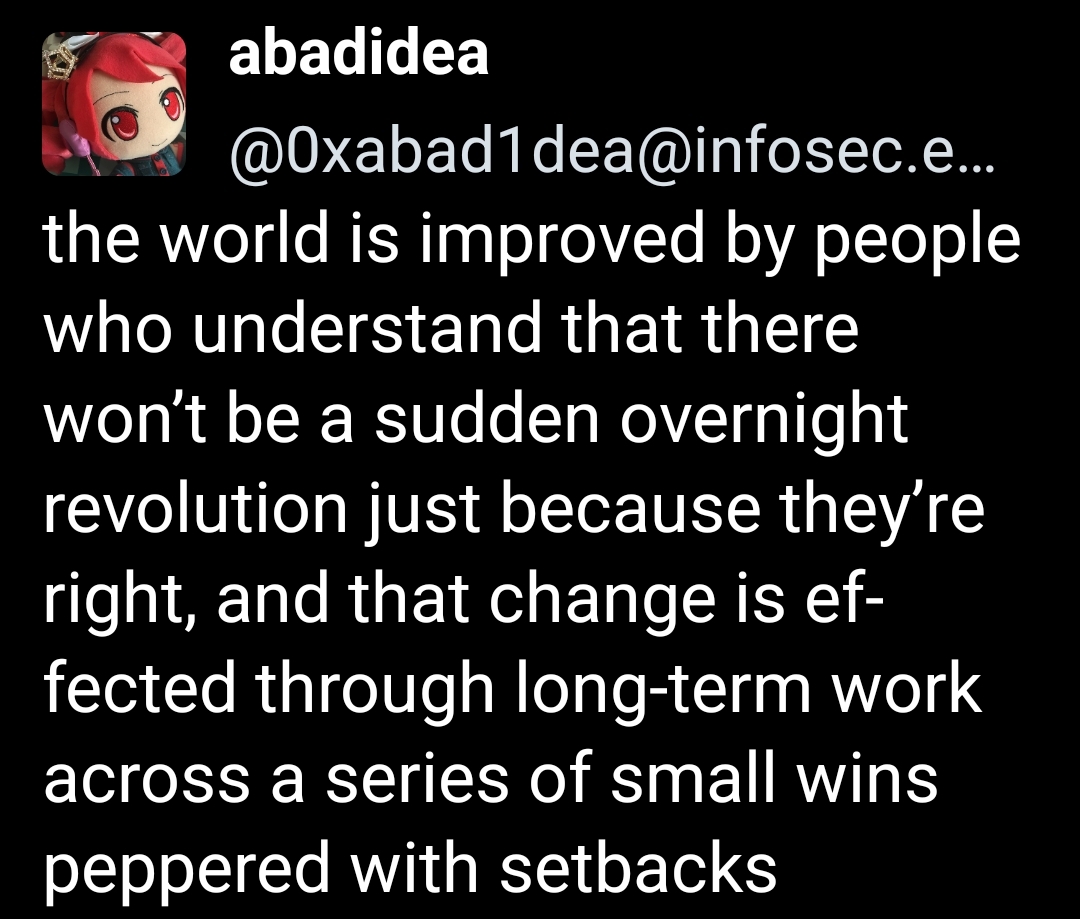this post was submitted on 05 Sep 2024
688 points (97.0% liked)
People Twitter
5275 readers
734 users here now
People tweeting stuff. We allow tweets from anyone.
RULES:
- Mark NSFW content.
- No doxxing people.
- Must be a tweet or similar
- No bullying or international politcs
- Be excellent to each other.
founded 1 year ago
MODERATORS
you are viewing a single comment's thread
view the rest of the comments
view the rest of the comments

From what I've seen, big upswells in revolutionary activity tend to correspond with sharp plunges in national prosperity. The COVID epidemic and subsequent mass layoffs put hundreds of thousands of people into the streets on a regular basis. Before that, the Great Recession kicked off a flood people on the streets of major metro areas. Then the mini-recession of 2014, combined with a ratcheting of police violence, sent another wave of protesters out.
But these conditions eventually reversed themselves, unemployment rates fell back to pre-recession levels, and the risk of police violence started to look like it outweighed street protests and organizing efforts for large swaths of the population.
The suggestion that people are just lazy and won't do any organizing seems contrary to reality. People organize quickly and easily when they've got nothing better to do. Its when they're drawn back into the job market, when they start seeing their economic situation recover, and when they feel like they have a bit more to lose that revolutionary action devolves into the kind of shitposting you can do from an office desk or during a long commute on a cell phone.
Incidentally, this isn't something political leadership is unaware of, either. Low unemployment is a policy goal of the state precisely because it corresponds with lower crime rates, less public protest, and fewer insurgent political campaigns to unseat the incumbents.